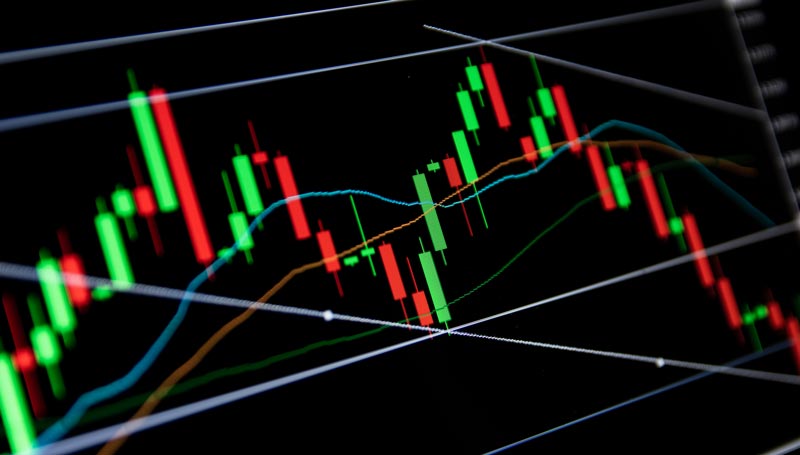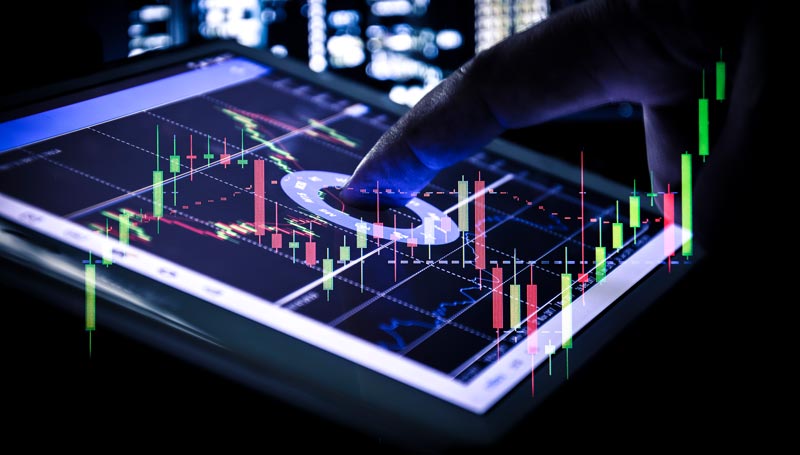

18.06.2019 – Daily report. Godlike Mario Draghi intervenes in stock trading: The head of the European Central Bank (ECB) has promised a relaxation of monetary policy if necessary. The stock market applauds. Meanwhile, there are growing signs that China is about to prepare a counterstrike in the customs dispute with the US.
Loose monetary policy ahead
When the Lord of the Money speaks, charting becomes pointless. The DAX just wanted to slip below the 50-day moving average of 12,086 points, on which the index had recently made such good progress. Draghi then provided for a moderate plus of 0.8 percent.
Should the economic outlook not improve, an additional easing would be necessary, Draghi announced at the ECB central bank conference in Sintra, Portugal. He added: “Additional interest rate cuts and further bond purchases are conceivable, they are part of the ECB’s instrument box.
As a reaction, the yield on ten-year German government bonds slipped to a new record low in Germany. We always say: Keep an eye on your regular market updates. Events on the floor are constantly changing. The negative ZEW Indicator of Economic Sentiment receded into the background in the face of the ECB.
Asia without a clear trend
Monetary policy had also previously been the dominant topic in Asia. Many brokers were waiting for the Fed meeting on Wednesday. Few players currently expect interest rates to be lowered, but many investors are hoping that Fed Chairman Jerome Powell will make some indications in this direction. The Chinese CSI-300 climbed 0.4 percent to 3,668 points. Japan’s leading index, the Nikkei 225, closed 0.7 percent lower at 20,973 points.
Wall Street listless
In New York, too, most investors had held out sideways before the Fed meeting. The Dow Jones index rose by a minimal 0.1 percent to 26,112 points. The market-wide S&P 500 also rose by 0.1 percent to 2,889 points. And the composite index of the technology exchange Nasdaq climbed by 0.6 percent to 7,845 points.
Focus on oil and rare earths
Meanwhile, the Wall Street Journal reported an interesting development from the oil market. Saudi Arabia was advocating a cut in production within OPEC in the second half of the year, the paper reported, citing insiders. And China is currently arming itself in the looming trade war with the USA. The National Development and Reform Commission (NDRC) is preparing cuts in the export of rare earths. This is the result of talks with those responsible in the Chinese Rare Earth industry, the press said yesterday.
This is what the day brings
The calendar for today’s Tuesday is otherwise thinly filled. The US construction starts and approvals at 2:30pm are likely to cause a sensation.
The Bernstein Bank wishes you successful trades!
Important Notes on This Publication:
The content of this publication is for general information purposes only. In this context, it is neither an individual investment recommendation or advice nor an offer to purchase or sell securities or other financial products. The content in question and all the information contained therein do not in any way replace individual investor- or investment-oriented advice. No reliable forecast or indication for the future is possible with respect to any presentation or information on the present or past performance of the relevant underlying assets. All information and data presented in this publication are based on reliable sources. However, Bernstein Bank does not guarantee that the information and data contained in this publication is up-to-date, correct and complete. Securities traded on the financial markets are subject to price fluctuations. A contract for difference (CFD) is also a financial instrument with leverage effect. Against this backdrop, CFD trading involves a high risk up to the point of total loss and may not be suitable for all investors. Therefore, make sure that you have fully understood all the correlating risks. If necessary, ask for independent advice.



















